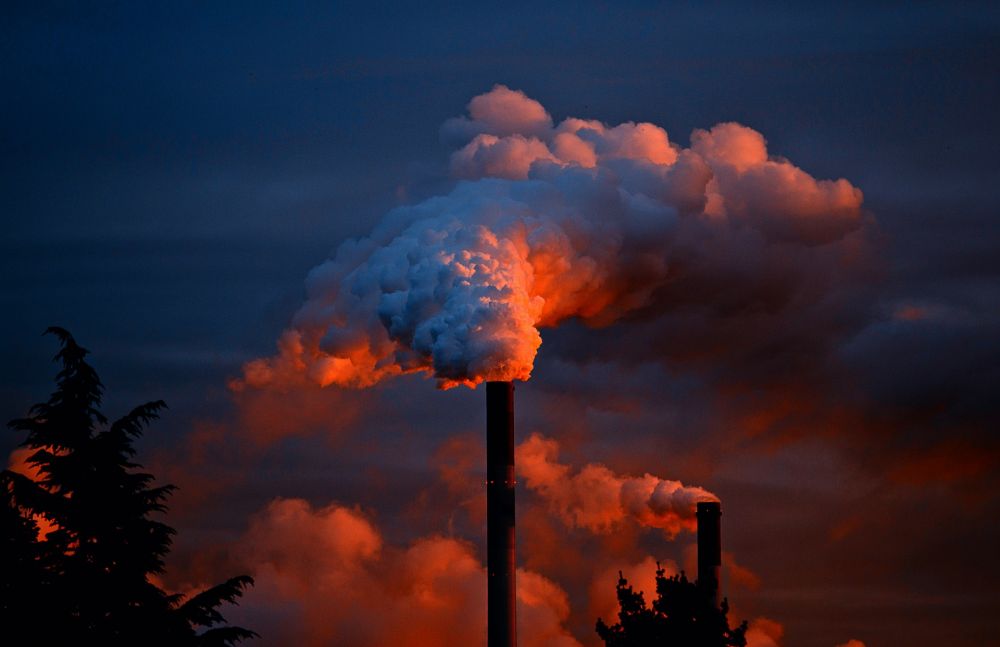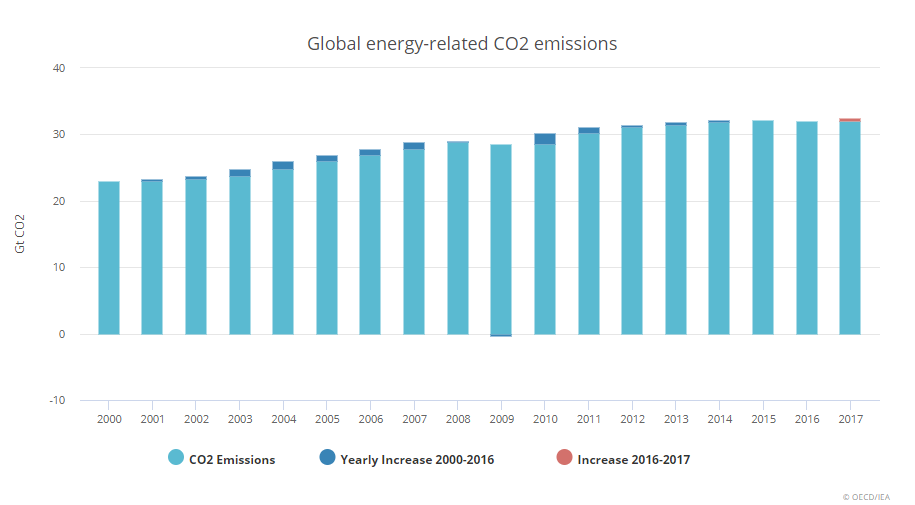Global carbon emissions grow to highest-ever rate
Carbon emissions emitted into the Earth’s atmosphere grew by 1.4 percent in 2017, reaching a historic high of 32.5 gigatonnes.

Carbon emissions emitted into the Earth’s atmosphere grew by 1.4 percent in 2017, reaching a historic high of 32.5 gigatonnes.
This is the headline figure from a new report from the International Energy Agency (IEA), which also found that global energy demand grew by 2.1 percent over the past year. Energy usage has been bolstered by renewed consumption in China and India, which made up 40 percent of the overall increase.
72 percent of this new demand was met by fossil fuels while renewables managed to meet one quarter.
The increase in carbon emissions is a resumption of growth after three years of global emissions remaining stationary, and the first since the landmark Paris climate agreement was signed. However, some notable exceptions came from major nations; declines were found in the United States, United Kingdom, Mexico and Japan.
The IEA noted that the United States saw a decline of 0.5 percent, the third year in a row that emissions have dropped, largely attributable to the decline of coal-fired power plants and the increase in renewables. Emissions in the UK dropped by 3.8 percent.
“The robust global economy pushed up energy demand last year, which was mostly met by fossil fuels, while renewables made impressive strides,” said Dr Fatih Birol, the IEA’s Executive Director. “The significant growth in global energy-related carbon dioxide emissions in 2017 tells us that current efforts to combat climate change are far from sufficient. For example, there has been a dramatic slowdown in the rate of improvement in global energy efficiency as policy makers have put less focus in this area”.
The news should provide a wake-up call to the international community as calls to accelerate the transition to a low-carbon economy are more pressing than ever. Research published in the past week alone has shown that ditching fossil fuels sooner rather than later could save over 150 million lives.
In addition, the World Bank has warned that reducing carbon emissions now could prevent millions of people from becoming ‘climate migrants’ in order to make a living.
Source: IEA






_400_250_80_s_c1.jpg)
